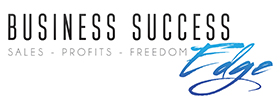If you need to get more coaching clients, fast, Facebook is the place to go.
With over 2 billion active users, it is the largest social media platform out there – and one of the best places to find new coaching clients… If you know how to go about it, of course!
My secret weapon? Facebook challenges.
Whether you’re just starting out, or have been in the coaching business for a while, this article will show you how to use Facebook challenges to attract qualified prospects and turn them into paying clients.
How Facebook Challenges Help Your Business Grow
Gain visibility
Remember those 2 billion users Facebook has?
The average user spends 41 minutes browsing Facebook every single day.
That’s a big window of opportunity for you to get their attention and boost your business’ visibility…
Running a Facebook challenge can give you a massive, rapid visibility boost in a matter of days. Challenges (when done right) provide a ton of value to a very specific group of people you want to help, making it a great introduction that doesn’t feel like a sales pitch.
A well-executed challenge will place you right in front of your ideal clients… While simultaneously making you stand out in a sea of other coaches who are using the same old marketing tactics everyone is already tired of.
(By the way: if you think your potential clients are not on Facebook, you are almost definitely looking for them in the wrong place!
Even executive coaches can use Facebook to get more clients – they just have to know where to look.)
Drive potential clients to your site
Visibility and brand awareness is great, but what you really want is leads and, ultimately, clients, right?
A challenge naturally creates a buzz around your brand and piques the interest of potential clients, driving relevant and real people to your site… At a much, much lower cost than most other marketing activities such as Google Ads.!
Make sure your site is set up to accommodate this sudden flood of new visitors.
Creating a dedicated landing page for your challenge participants on your site is highly recommended.
Once people arrive on your site, you can use your opt-in offer to get them on your email list. Now you have relevant leads and a direct connection to reach them in their inbox.
Congratulations – you’re on your way to conquering one the biggest challenges most business owners and coaches face!
Convert prospects into clients
Challenges help you build trust with potential clients even before you have added them to your email list… Which makes it that much easier to convert prospects into paying clients.
Why is that?
When you run an online challenge, you are essentially guiding a group of people towards achieving a goal.
It’s like a free mini-program they get to try before purchasing the real thing.
If they like what they see inside your challenge, they will naturally gravitate towards purchasing one of your paid programs or services.
After all, who doesn’t like working with people who help them get results?
How to Use Challenges to Get More Coaching Clients – Fast
Getting more clients with challenges is not just about creating the challenge itself.
You also need to know how to get the word out to make sure it reaches the right people at the right time and set up the delivery of the challenge content for maximum success.
Get clear on who you want to attract to your challenge
Who is your ideal challenge participant?
Your ideal client, of course.
That’s who this challenge, and any promotion efforts you do, should be aimed at.
When you are speaking directly to this person, it will show – and will make them more likely to trust you and join your challenge.
This doesn’t mean other types of people can’t or won’t join your challenge.
However, if you want to get new coaching clients FAST, getting specific about this from the very beginning is essential.
Find out where your ideal clients hang out
Another reason why it’s important to define who your ideal participant is?
Figuring out how and where to reach them.
While you can, and should, use other social media to promote your challenge, your best bet for gaining visibility quickly is finding and joining 5-10 Facebook groups where your ideal client hangs out.
Position yourself as an expert before promoting your challenge
So what do you do once you’ve joined all those Facebook groups?
If you want to get clients quickly, you need to position yourself as an expert on a very narrow, specific topic.
Not only will it make establishing your expertise easier – but it will also make you more memorable to potential clients.
Think about it, who would you trust more: a general fitness coach or a weight loss coach who helps overworked mothers stay in shape while climbing the corporate ladder?
The more specific you can get with your positioning, the better (and faster) your results will be!
Provide value without expectations
While many Facebook groups don’t allow self-promotion, you can still engage with your ideal clients while hanging out there.
You can show off your expert status and provide value by sharing helpful information with other group members completely for free.
Check the Facebook groups you joined for questions that are specific to your field of expertise.
Do your best to answer these questions – but avoid chiming in on other questions that are only tangentially related to your expertise.
Remember, you want to be known as an expert in a specific niche, not a general advisor!
5 Tips to Promote a Profitable Facebook Challenge
So you’ve managed to attract a few ideal prospects to your challenge group, page, or post… Now what?
The key to getting more coaching clients is knowing how to run a challenge that’s not just popular, but also profitable.
Here are 5 helpful tips for a more successful online challenge. (For more tips and a more detailed guide to running a profitable online challenge, see my FREE checklist at the end of this article)
1. Keep the challenge short and sweet
I recommend sticking to 5-day challenges.
Running longer challenges, like a 30-day challenge, can actually do more harm than good.
Think about it – how likely would you be to commit to 30 days of no sugar… Especially if you didn’t know the person running the challenge?
5 days seems like a much more manageable chunk of time to most people – which means more people will join your challenge and stick around till the end.
2. Pick a clear name
The right name can mean the difference between hundreds of people joining your challenge… And getting no sign-ups at all!
Keep it to 3-5 words and make sure that the benefit of the challenge is made clear in the name – such as “5 Days to Better Sleep.”
Avoid including your business name in the challenge name.
You want people who don’t know you yet to join the challenge and become clients… Which means the focus has to be on what they get out of the challenge, not on you and your business.
3. Don’t overdo the content
If you are doing a 5-day challenge, each lesson should only last 5-10 minutes.
Each day, send your challenge participants a video telling them what the topic is, why it’s important, and what their assignment for the day is.
Give your challenge participants the least amount of information they need to complete the task at hand.
You can include a free worksheet if you want, but a short video is going to be more than enough to run a profitable challenge – and help you avoid overwhelm at the same time!
4. Break your challenge down into bite-sized action steps
While you want your challenge to be, well, a challenge, you don’t want to overwhelm your prospects with humongous tasks.
After all, the last thing anyone wants to do after a long day of work is to fill out a whole workbook… Or do an hour-and-a-half-long workout.
Focus on micro-commitments that can be completed in a matter of minutes.
Think 10 burpees, a few minutes of meditation, writing down 3 sentences in a journal… The possibilities are endless!
In addition to that, you want to make sure your action steps give your participants a micro-win every single day.
People love feeling accomplished – and they love business owners who make them feel that way.
You should also remember to congratulate your challenge participants on their micro-wins.
5. Include a clear call to action
I see so many challenges fail because business owners are not clear enough on what they want their challenge participants to do once the challenge is over.
What is the natural next step your challenge participants can take to continue working with you?
Do you want them to book a call with you?
Join one of your programs?
Sign up for a free webinar (where you will sell them your paid program)?
Whatever it is, don’t be afraid to tell your challenge participants what to do next!
You just helped them achieve an important goal of theirs – there’s no shame in promoting your paid offerings which could be even more helpful to them.
Be as clear and specific as possible, and never assume your challenge participants already know what they should be doing.
Need More Help?
If you want to attract new clients to your coaching business fast, running a Facebook challenge is your best bet.
Facebook challenges have the potential to get you massive visibility very quickly – and they convert leads into clients like no other marketing strategy out there.
Want to make sure you nail every single aspect of your challenge? Grab your FREE Challenge Checklist now.






Leave A Comment